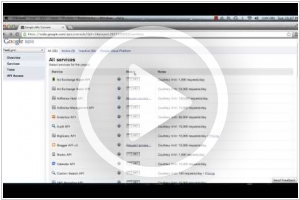Google App Engine
Updated: July 31, 2023
Google App Engine is a fully managed Platform as a Service (PaaS) offered by Google Cloud, allowing developers to build, deploy, and scale web applications and services with ease. As a serverless environment, App Engine abstracts away the underlying infrastructure management, enabling developers to focus solely on writing code. It supports multiple programming languages, including Python, Java, Node.js, and Go, making it versatile and accessible to a wide range of developers. App Engine automatically handles traffic spikes, ensuring applications can handle increased demand without manual intervention. With features like automatic scaling, built-in security, and seamless integration with other Google Cloud services, Google App Engine empowers developers to develop and deploy applications rapidly, efficiently, and at scale.
Google App Engine lets you run web applications on Google's infrastructure. App Engine applications are easy to build, easy to maintain, and easy to scale as your traffic and data storage needs grow. With App Engine, there are no servers to maintain: You just upload your application, and it's ready to serve your users.
See also: Top 10 Public Cloud Platforms
See also: Top 10 Public Cloud Platforms
2017. Google App Engine gets a firewall
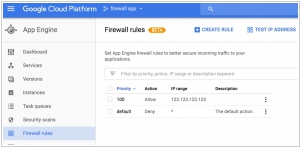
Finally, Google App Engine is introducing a comprehensive firewall with advanced features. Previously, developers faced challenges in easily limiting access to their applications on the service to a specific set of IP addresses or ranges, especially for testing purposes. They had to incorporate a custom solution directly into their applications, resulting in incurred costs even for rejected requests that still reached their applications in some capacity. Now, developers have the convenience of utilizing the Google Cloud Console, App Engine Admin API, or the gcloud command-line tool to establish access restrictions that permit or block specific IP addresses. By placing the firewall in front of the application, rejected requests are intercepted before reaching the application, eliminating the need for App Engine to initiate unnecessary resources only to reject those requests. This enhancement streamlines access management, reduces costs, and optimizes resource allocation within Google App Engine.
2017. Google App Engine now supports all programming languages
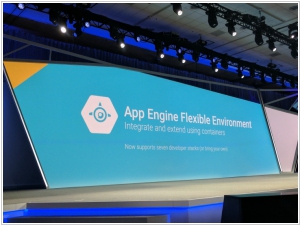
Google has unveiled the latest iteration of its platform-as-a-service for constructing application backends, known as App Engine. The major highlight of this release is the newfound support for any programming language, empowering developers to create applications using their preferred coding language. Google considers this development to be a significant game changer, as it enhances the platform's openness—an important theme for the company as it endeavors to attract enterprise customers to the broader Google Cloud Platform. In the previous version of App Engine, developers had access to a limited range of runtime libraries. Once an application was built on the platform, extracting it from Google proved to be exceedingly challenging. As part of its commitment to openness, Google aims to facilitate easy migration and mitigate vendor lock-in, even if it means transitioning away from the Google Cloud Platform. This shift toward greater openness aligns with Google's philosophy and its goal of providing users with flexibility and mobility in their technology choices.
2013. Now you can use Google App Engine to host your company website
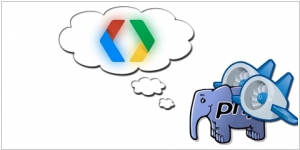
Google App ***
2013. Google Compute Engine is available for all
About a year ago, Google unveiled its cloud IaaS platform known as Google Compute Engine, which we identified as a formidable competitor to Amazon Web Services. However, the platform was initially restricted to selected users who subscribed to Google's Gold support at a cost of $400 per month. Excitingly, as of yesterday, Google Compute Engine has been made available to the general public, marking the beginning of an intense competition. With its public launch, Google has introduced several new features. These include advanced routing capabilities, allowing the creation of gateways and VPN servers that facilitate the development of applications spanning both local networks and Google's cloud infrastructure. Additionally, Google App Engine now supports PHP, broadening the platform's compatibility. Unlike AWS, Google has implemented per-minute billing for virtual servers instead of charging on an hourly basis. Pricing starts at $0.02 per hour for a shared-core server. The accompanying video demonstrates how a Linux server with specific parameters can be created on Google Compute Engine in just 30 seconds.
2011. Google killed App Engine for Business
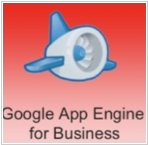
Last month, at the Google I/O conference, Google announced changes in GAE pricing, and caused panic among the developers. Without going into details, we'll just say that the developers initially incorrectly calculated the new fees, and only after Google's clarification post, it became clear that the prices would jump, but not so much. However, in the shadow of this panic another small announcement was unnoticed - the enterprise version of Google App Engine, launched a year ago - was closed. This does not mean that Google is no longer positioning its PaaS platform for business. Most of the features of the enterprise version (99.95% SLA, support for SSL, SQL, Spring framework) will be soon implemented in the basic version. However, this means that Google has done a lot of mistakes with the PaaS platform and currently loosing the game in competition with Microsoft, Salesforce, Amazon, VMWare. ***
2010. Google partners with VMWare to adopt GAE for Enterprise
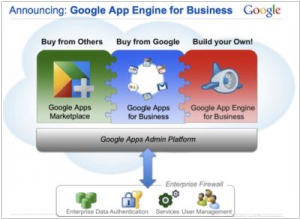
In response to the recent launch of VMForce, Google today announced the upcoming version of its cloud platform for enterprise users - Google App Engine for Business. Until now, GAE was actually not suitable for hosting enterprise applications. First, GAE does not provides enterprise-ready support, security and service level guarantees. Besides, it supports only one database - Big Table, which is not used in existing business applications, and locks clients into one platform. The enterprise version of GAE, which is scheduled for 4 quarter of 2010, will fix these issues. Corporate customers will be offered a premium support, 99.9% SLA, administration panel for managing security policies. In addition, GAE will add support for SSL and SQL databases. Instead of difficult-to-forecast scheme of payment for computer resources, the clients will pay a flat rate - $8/month for app user. ***

